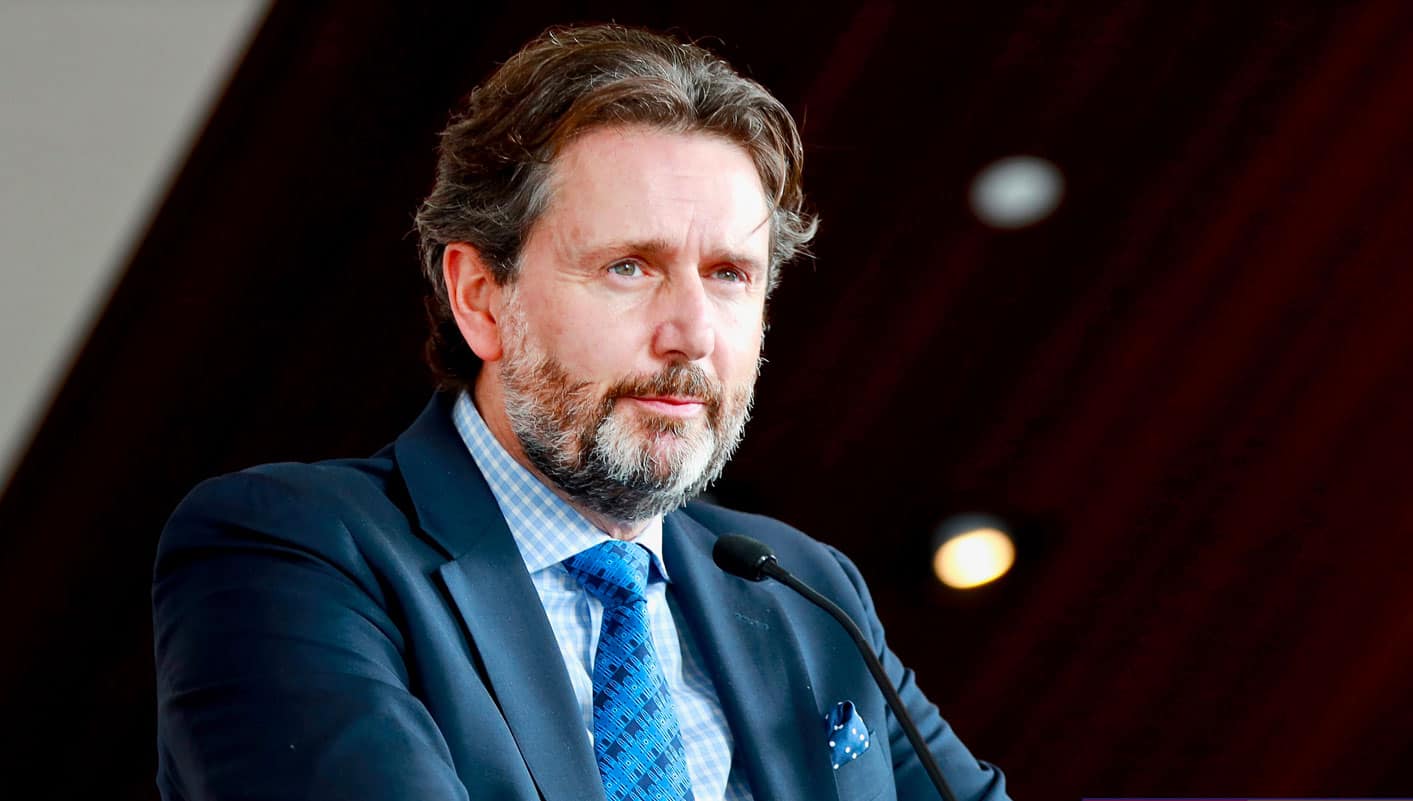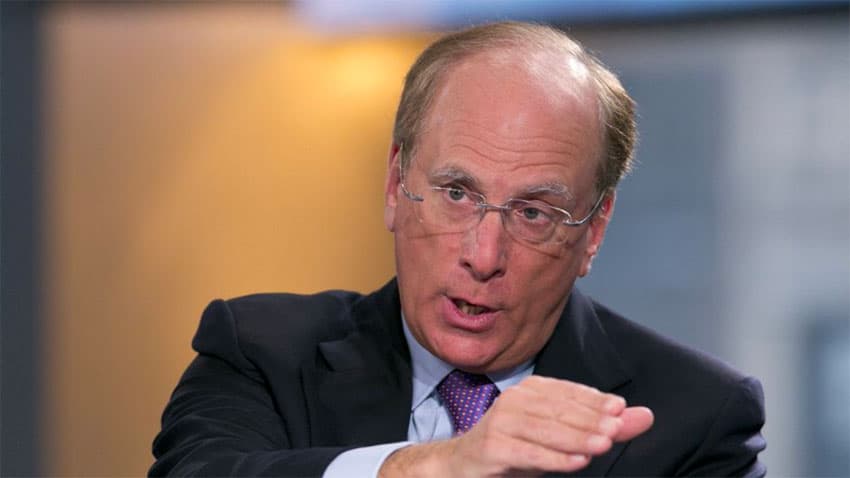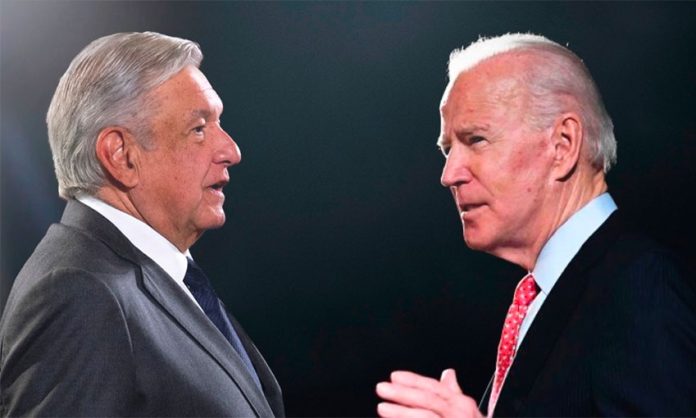President López Obrador’s “exaggerated nationalism” in pursuit of energy sovereignty will lead to clashes with the United States, predicts a Mexico expert and senior official of a United States think tank.
Duncan Wood, vice president for strategy and new initiatives at the Washington D.C.-based Wilson Center and a senior adviser to the center’s Mexico Institute, said Friday that AMLO, as the president is commonly known, has focused on achieving energy sovereignty for the past two years.
The most recent example of that goal was the enactment this week of a new electricity law that favors the state-owned Federal Electricity Commission (CFE) by prioritizing the injection of power it produces into the national grid over that generated by private and renewable companies. The law, however, was promptly suspended by a judge after it was challenged by renewable energy companies.
Speaking during a round table discussion that was part of Mexico’s annual banking convention, Wood noted the quest’s negative impact on private energy companies, some of which have spent billions of dollars in Mexico since the sector was opened up to foreign and private investment by the previous federal government.
“There is an erosion of regulatory and legislative frameworks,” he said, adding that he has no doubt that AMLO will block outside investment in the energy sector in the second half of his 2018-2024 administration.

Wood said that Mexico should be attracting billions of dollars in investment annually, noting that the United States still has a lot of trade conflicts and asserting that it’s “Mexico’s time.”
However, López Obrador is a “genius for squandering these kinds of opportunities,” he said.
Wood predicted that once the Electricity Industry Law is enacted definitively the United States government will seek to respond using the framework of the USMCA, the new North American free trade agreement that took effect last July. Many lawyers have already said that the law violates the terms of the pact.
“Energy is one of the areas where we’re going to see an increase in clashes [between Mexico and the United States],” Wood said.
The former director of the Wilson Center’s Mexico Institute said there is a possibility that Mexico will be punished or sanctioned in some way for violating the USMCA.
Although López Obrador lauded the new North American trade pact and asserts that his administration welcomes foreign investment, some of the actions of his government have been downright hostile to investors.
In addition to legislating to sideline private and renewable energy companies in the electricity market, the federal government has canceled new oil and gas block auctions, rewritten pipeline contracts and scrapped the previous government’s Mexico City airport project and a United States company’s brewery project in Baja California.
Rafael Fernández de Castro, director of the Center for U.S.-Mexican Studies at the University of California in San Diego, agreed with Wood that there will be friction between Mexico and its northern neighbor but predicted that migration and security will be the most contentious issues.
“On some issues there will be friction, on some issues there will be collisions,” he said.
With regard to the energy issue, Fernández said: “I don’t see a train crash but there is the USMCA and there will be reprisals for Mexico’s violations.”
Also speaking at the banking convention, the CEO of investment management corporation BlackRock, Larry Fink, warned that investors are increasingly looking to invest in sustainable, environmentally friendly businesses and sectors and are prepared to restructure their portfolios to do so.
Therefore, capital will leave companies, sectors and countries that show they are not willing to make changes to become more environmentally friendly, Fink said.

He said climate change has come up in every conversation he has had with investors in Mexico, China, Japan and the United States, adding that he has fielded questions from them about how to withdraw their investment in unsustainable companies or sectors and reassign it elsewhere.
Fink said officials of all governments around the world need to meet with private sector representatives to discuss ways to increase long term investment in science and technology to reduce the impact of greenhouse gases on climate.
He acknowledged that there are differences between the Mexican and United States government but expressed confidence they can be resolved.
Meanwhile, the head of Iberdrola, Spain’s biggest power company, said in an interview with the Bloomberg news agency that he expects to see numerous legal challenges to Mexico’s new electricity law.
José Ignacio Sanchez Galán said that Iberdrola, which has invested almost US $12 billion in power projects in Mexico, could also file a lawsuit against the law.
If the company’s lawyers see “that the law affects our existing business, I’m sure we’ll try to defend the interest of our shareholders as we do in all countries,” he said. “I imagine everybody is going to do something similar.”
Iberdrola last year became the first major renewable energy company to halt new investment in Mexico, Bloomberg reported.
López Obrador, who has pledged to rescue the CFE and state oil company from years of neglect and give them a more central role in the energy market at the expensive of private companies, has been scathing in his criticism of the Spanish firm, accusing it of corruption and launching a media campaign against him.
Sanchez acknowledged that governments have the right to implement policies as they see fit but warned that the electricity law could raise power costs, harm the environment and damage investment.
“I’m sure that everybody is going to go to court to defend against these damages,” he said.
Source: El CEO (sp), El Sol de México (sp), La Política (sp), Bloomberg (en), La Jornada (sp)
